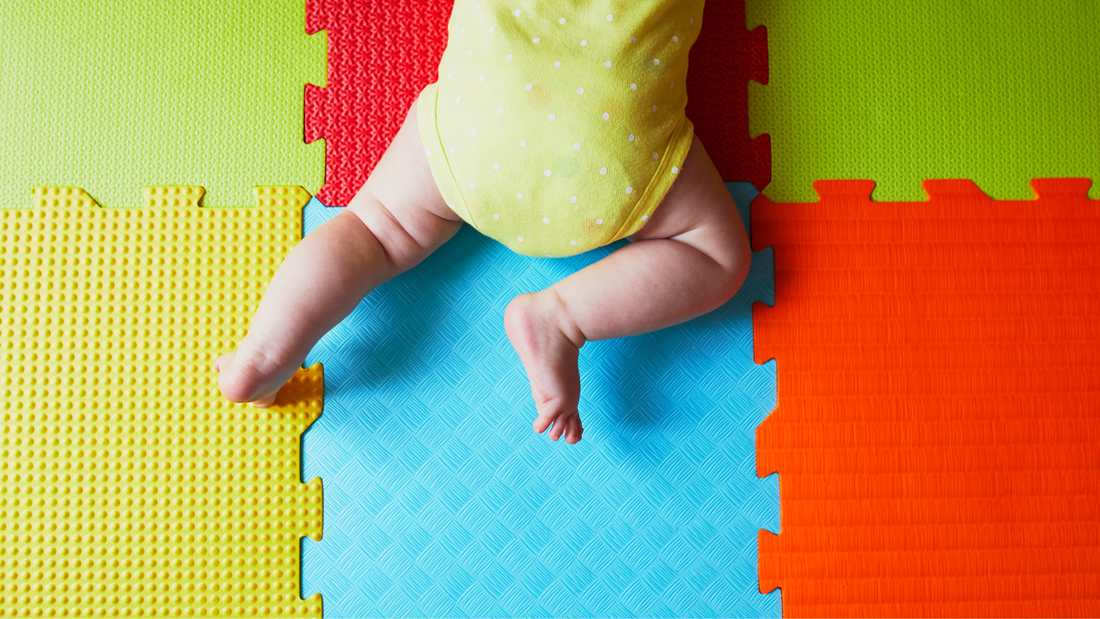Introduction
Playtime is not just about having fun; it plays a crucial role in your baby's growth and development. Engaging in play activities offers numerous benefits that contribute to their cognitive, physical, and social development. From enhancing their problem-solving skills to promoting creativity and social interaction, playtime is a vital aspect of your baby's early years. In this article, we will delve into the importance of playtime for your baby's growth and development, exploring its various benefits and offering practical tips to make playtime a valuable learning experience.
The Importance of Playtime for Your Baby's Growth and Development
Playtime is a critical period for your baby's overall growth and development. Let's explore why playtime holds such importance in shaping their early years:
1. Stimulates Cognitive Development
During playtime, babies engage in activities that stimulate their brain development. Play provides an opportunity for them to explore and interact with their environment, fostering their cognitive abilities. Simple games like peek-a-boo encourage object permanence, while shape-sorting toys promote problem-solving skills and spatial awareness.
2. Enhances Motor Skills
Playtime allows babies to develop and refine their motor skills. From grasping objects to crawling, walking, and eventually running, play activities provide the necessary stimuli for physical development. It helps strengthen their muscles, improve coordination, and develop fine motor skills required for tasks like holding a spoon or stacking blocks.
3. Boosts Language and Communication
Engaging in playtime activities facilitates language and communication development in babies. Through play, they learn to imitate sounds, gestures, and facial expressions. Interactive toys, such as those with buttons that produce sounds or words, can help expand their vocabulary and promote early language acquisition.
4. Fosters Emotional and Social Skills
Playtime offers opportunities for babies to explore and express their emotions, thereby fostering emotional development. Play also encourages social interaction, enabling babies to develop crucial social skills. Interacting with caregivers, siblings, or other children promotes empathy, sharing, and cooperation, setting the foundation for healthy social relationships in the future.
5. Sparks Imagination and Creativity
Playtime provides an environment that sparks imagination and creativity in babies. Whether they are engaging in pretend play with dolls or building structures with blocks, their imagination is at work. Such activities stimulate their creativity, problem-solving abilities, and abstract thinking, laying the groundwork for future innovation and critical thinking.
6. Encourages Independence and Self-Confidence
Through play, babies learn to explore and discover the world around them independently. As they accomplish tasks or solve simple puzzles, they gain a sense of achievement, boosting their self-confidence. Encouraging them to play independently also helps develop their decision-making skills and promotes a healthy sense of autonomy.
FAQs about the Importance of Playtime for Your Baby's Growth and Development
FAQ 1: How much playtime does my baby need each day?
Babies thrive on playtime, and it is recommended to provide them with at least one to two hours of dedicated playtime each day. This allows them to engage in various activities that promote their growth and development.
Answer: It is essential to balance structured playtime activities with unstructured, free play where your baby can explore and engage in spontaneous play. Both types of play contribute to their development
FAQ 2: What are some age-appropriate play activities for my baby?
Answer: The type of play activities suitable for your baby will depend on their age and developmental stage. For infants, activities like tummy time, sensory play with soft toys or textured objects, and gentle music can be engaging. As they grow older, you can introduce stacking blocks, shape sorters, and interactive toys that encourage exploration and problem-solving.
FAQ 3: Can screen time be considered as playtime for my baby?
Answer: While technology can be educational, it's important to limit screen time for babies. The American Academy of Pediatrics advises against screen time for infants under 18 months, except for video chatting. Instead, focus on hands-on, interactive play activities that stimulate their senses and promote physical and cognitive development.
FAQ 4: How can I make playtime more interactive and engaging for my baby?
Answer: To make playtime more interactive, join in and interact with your baby. Engage in conversations, sing songs, and read books together. Follow their lead and encourage their exploration. Provide age-appropriate toys and materials that stimulate their senses and allow for hands-on exploration. Rotate toys to keep things interesting and offer new learning opportunities.
FAQ 5: What role does playtime have in preventing developmental delays?
Answer: Playtime plays a crucial role in preventing developmental delays by providing essential stimuli for your baby's growth. Engaging in various play activities helps develop their cognitive, motor, language, and social skills. It promotes their overall development, laying a strong foundation for future learning and growth.
FAQ 6: Is playtime only beneficial for physical and cognitive development?
Answer: No, playtime offers a wide range of benefits beyond physical and cognitive development. It also fosters emotional well-being, social skills, creativity, and imagination. By engaging in play, babies learn to express themselves, regulate their emotions, and develop social connections, all of which contribute to their holistic development.
Conclusion
In conclusion, playtime is not just a fun activity for babies; it is essential for their growth and development. Engaging in play provides a multitude of benefits, including stimulating cognitive development, enhancing motor skills, boosting language and communication, fostering emotional and social skills, sparking imagination and creativity, and encouraging independence and self-confidence.
As parents, caregivers, and guardians, it is crucial to create a playtime environment that supports and nurtures your baby's development. Provide them with age-appropriate toys and materials, engage in interactive play, and allow them the freedom to explore and learn. Remember, playtime is not just about entertainment; it is a powerful tool that shapes your baby's future. Embrace the importance of playtime for your baby's growth and development and cherish these precious moments of learning and discovery.

